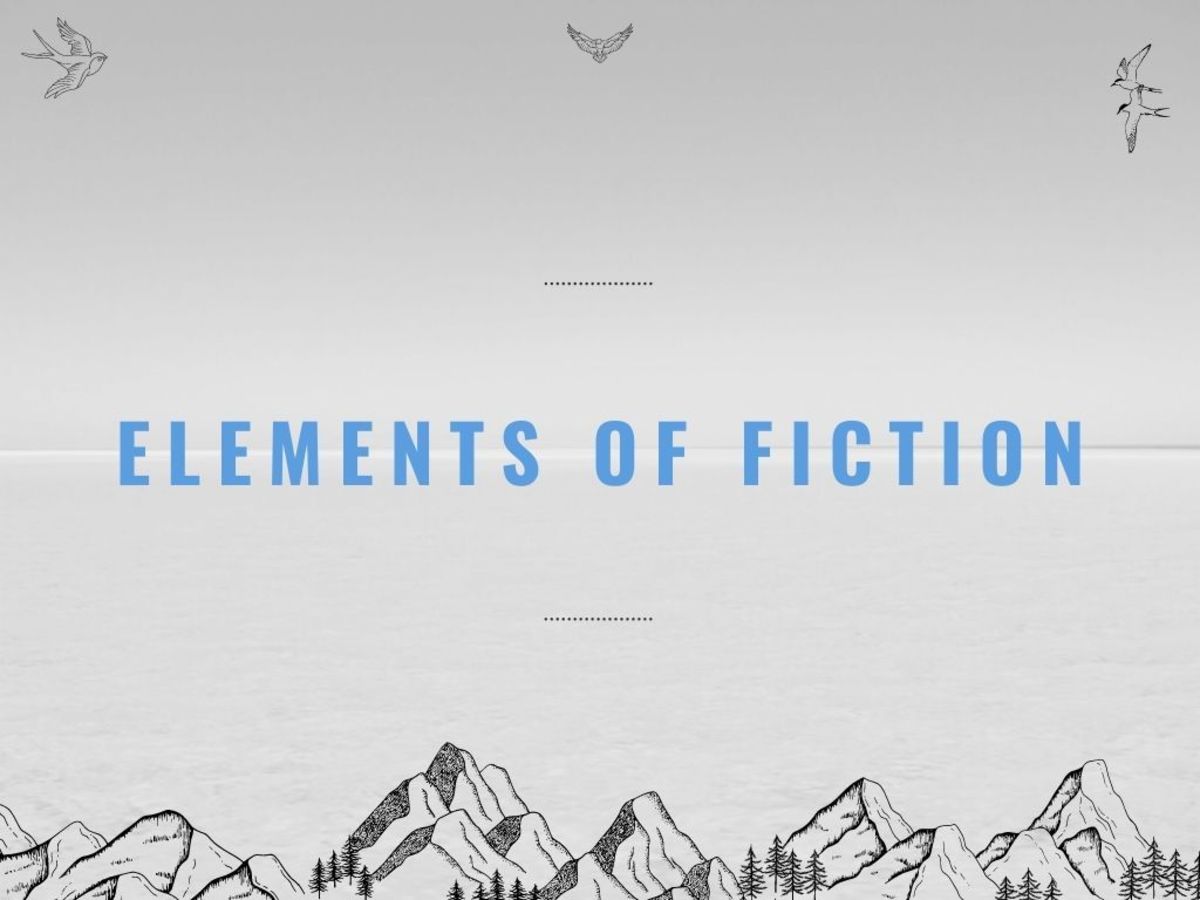Six Key Elements of a Good Story
We Are All Storytellers
Name a master storyteller for me. Take your time. I’ll wait.
For me, the quintessential storyteller only told one story during her career. Harper Lee set the standard for this writer, and “To Kill A Mockingbird” will always be the grail that I seek.
Let’s take a look at one passage from her masterpiece. After that, we’ll discuss the six key elements of a good story.
“Maycomb was an old town, but it was a tired old town when I first knew it. In rainy
weather the streets turned to red slop; grass grew on the sidewalks, the courthouse
sagged in the square. Somehow, it was hotter then: a black dog suffered on a
summer’s day; bony mules hitched to Hoover carts flicked flies in the sweltering
shade of the live oaks on the square. Men’s stiff collars wilted by nine in the
morning. Ladies bathed before noon, after their three-o’clock naps, and by nightfall
were like soft teacakes with frostings of sweat and sweet talcum.
People moved slowly then. They ambled across the square, shuffled in and out of the
stores around it, took their time about everything. A day was twenty-four hours long
but seemed longer. There was no hurry, for there was nowhere to go, nothing to buy
and no money to buy it with, nothing to see outside the boundaries of Maycomb
County. But it was a time of vague optimism for some of the people: Maycomb
County had recently been told that it had nothing to fear but fear itself.”

CREDIBILITY
Now that you have read the passage, let’s take a closer look at it. There is an economy of words in that passage. There are no large words to confuse the reader, and although it is written about a time and place most readers today cannot imagine (a small southern town during the Great Depression) it is very recognizable and believable.
Why?
Because Harper Lee achieved credibility through her writing.
Author David Rhodes explains it this way:
“If the characters don’t seem to naturally belong in the place they are imagined to be living, the story will lack credibility.”
It makes no difference whether you are writing about a space colony in a science fiction piece, or a cave in an adventure novel. Your job, as a writer, is to make it appear that the characters belong in the setting of the story, and that they are quite comfortable there. If the characters are comfortable then your readers will be as well.
CHARACTER
The longer I write the more I am convinced that your main characters are every bit as important as your story. In fact, I am leaning toward the characters being more important than the story itself. I am also willing to bet that your favorite books are your favorites because they have outstanding and memorable characters.
I first read “To Kill A Mockingbird” fifty years ago. Still today I can name at least seven characters from that book. If you stop and think about it, that is remarkable.
Name a mystery writer and I’m fairly certain I can name the main character in his/her mystery series. James Lee Burke/Dave Robicheaux…..Harlen Coben/Myron Bolitar….Lee Childs/Jack Reacher….John D. MacDonald/Travis McGee.
Yes, these writers were superb in their skills, but more than that, their characters came alive in my imagination, and I was able to relate to them on some level.
That, my friends, is good writing.

EMOTION
A writer who ignores the emotions of his/her readers is a writer doomed to fail. You can quote me on that.
If readers become invested in your story then you have done your job well. Tears….laughter….fright….remorse…..these are the common bonds shared by all….tap into those and then give yourself a pat on the back.
On the flip side, if your story does not tap into those emotions, then sit down and rewrite it until it does.
I have written several articles about this element in the past, so let’s move on.
ATMOSPHERE
What is the mood of your story? Is it foreboding? Is it mystical? Is it filled with wonder?
If a story is told well, there will always be an underlying tone to it, a visceral experience for the reader as they turn each page. The great writers are well-aware of this fact, and they use it masterfully to their advantage.
Word choice, of course, plays a part in establishing atmosphere, as does rhythm and setting.
Before you sit down to begin your story, ask yourself what the atmosphere should be, and then keep that in the back of your mind as you write each chapter. If a chapter does not fit the atmosphere that you seek, then keep writing until it does.

All six elements appear in this novel
SYMBOLISM
Adding symbolism to a novel is not an easy task, primarily because it is not a concrete task. Setting a scene, fleshing out characters, writing dialogue, these are things that flow in the telling of a story. Not so, symbolism. Writing symbolism is trekking through the abstract, and as such is much more difficult to do….but….if your story or novel is going to rise from average to good, then symbolism is necessary.
What is symbolism? Simply stated, symbolism is using one thing to symbolize, or represent, something else. For example, if I am writing about the death of a family member, and at the end of the passage I say that dark clouds appeared over the landscape, and the rains beat upon the window, I am using the dark clouds and the rain to symbolize depression and tears.
Again, it is not necessary to have symbolism in your story, but if you want your story to move to the next level, I highly recommend using it. One word of caution: if the symbolism is so abstract as to confuse the reader, it either has to be simplified or eliminated. As storytellers, the last thing we want to do is confuse our readers and leave them in a permanent state of confusion.
THEME
Again with the abstract. Writing the description of a character is pretty straightforward. I describe the physical characteristics of a person….how tall is she, is she thin or heavy, what color is her hair, how does she walk, and so on. But I cannot do that with theme. The theme of a story should be obvious without the author stating it.
Good vs evil is a common theme, but nowhere in a book will you find it stated as such. A good writer will make the theme apparent through the storytelling.
Does a writer need a theme? Most definitely no, but a story or novel without a theme will be pure pablum for the uninspired, and certainly not entertaining or rewarding for those readers who require a little bit more than bland.
Follow my website
- William Holland | Helping Writers to Spread Their Wings and Fly
Weekly discussions about writing and valuable tips
Keep These Six Elements in Mind
Do you need all six of these elements in every story you write? No!
Do you need all six of these elements if you want an exceptional story? YES!
There is a very good reason why excellent writers are excellent writers. They take no shortcuts. They do not take little breaks from quality. Every single sentence that they write in a short story or a novel serves a purpose. There are no throwaways.
Just something to think about. Go check one of your short stories and see if it contains all six of these elements. If it doesn’t, you might want to consider doing a little fine-tuning.
2014 William D. Holland (aka billybuc)
“Helping writers to spread their wings and fly.”










